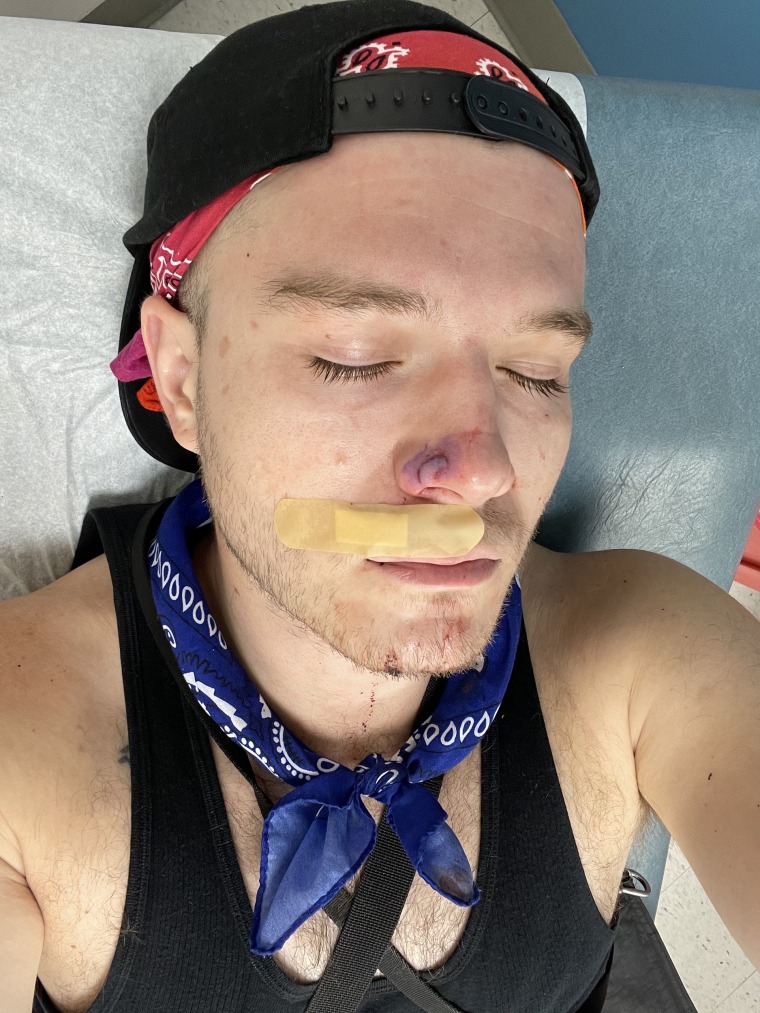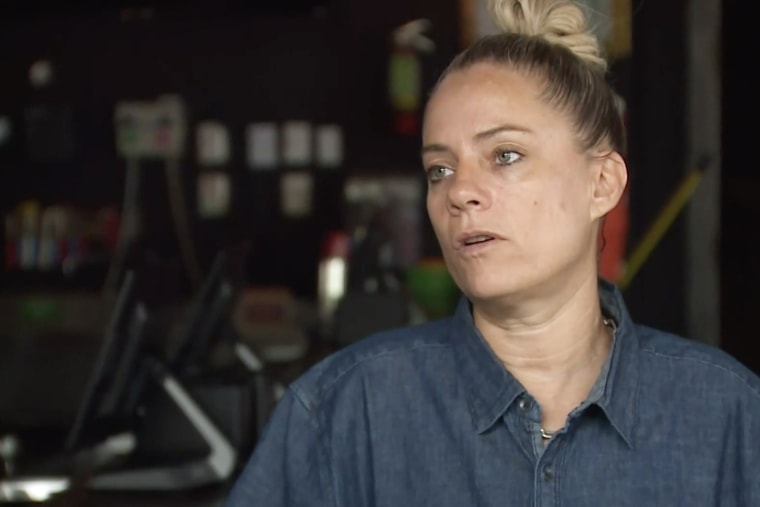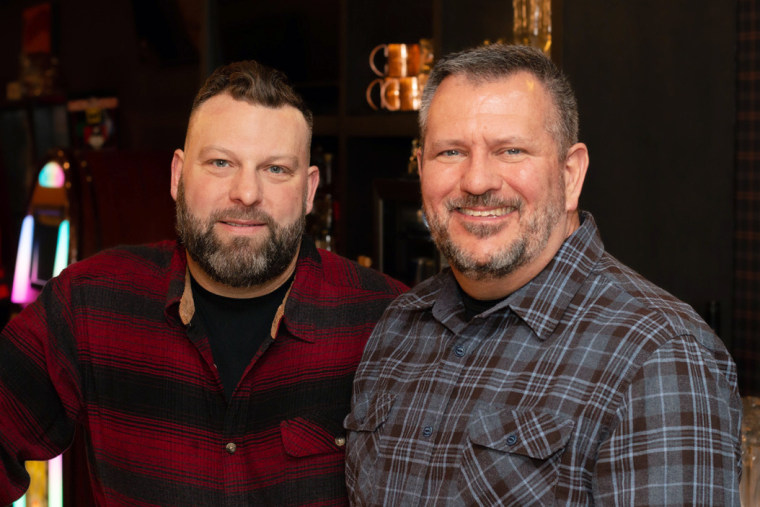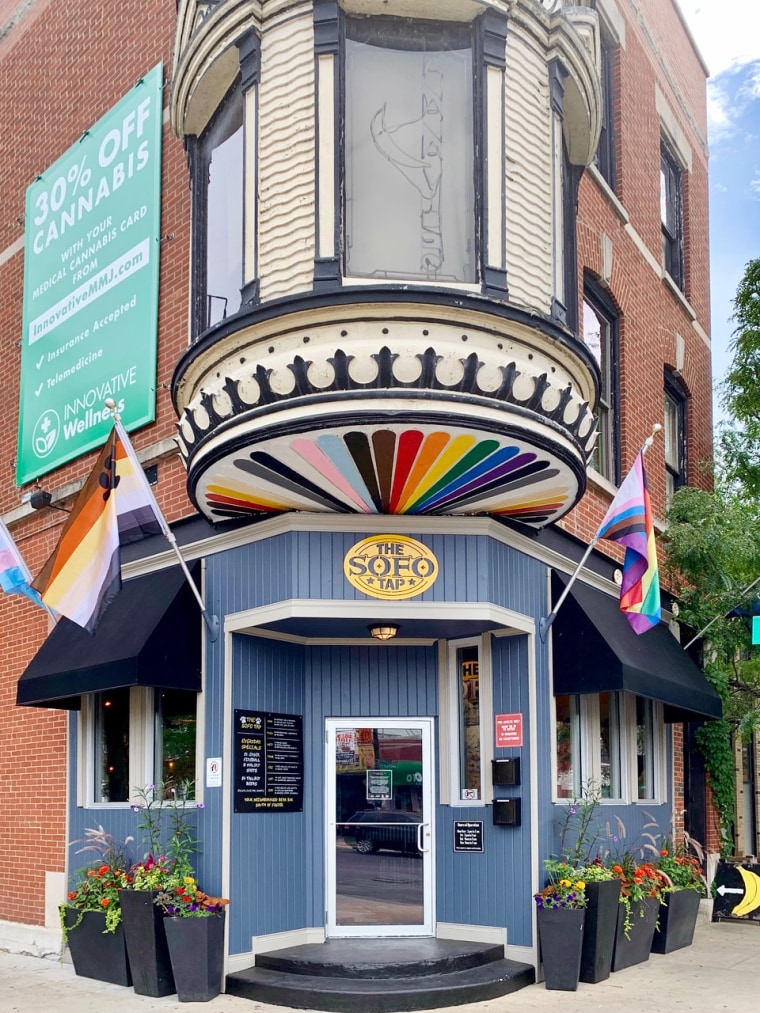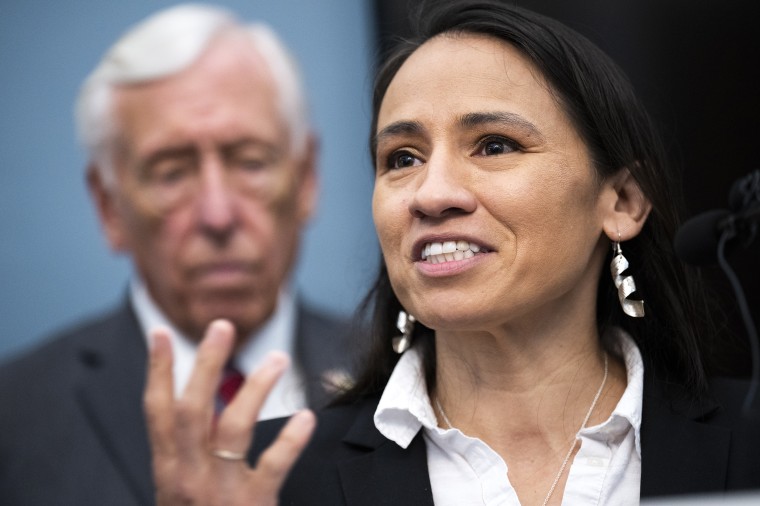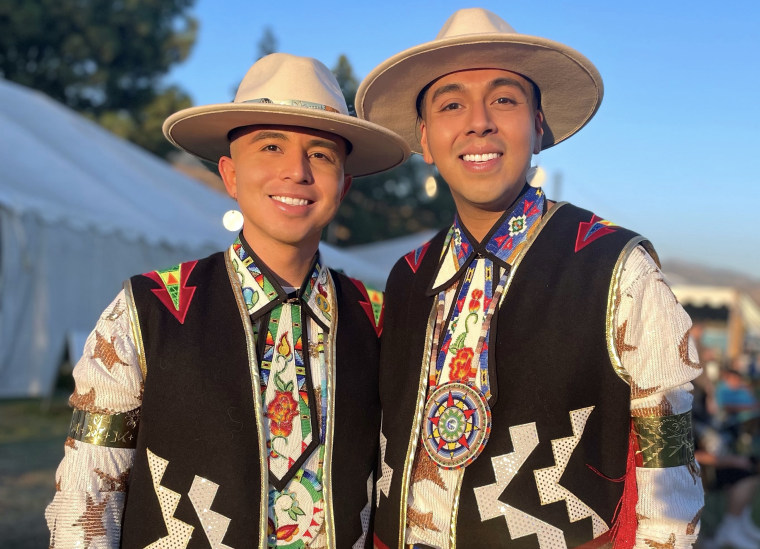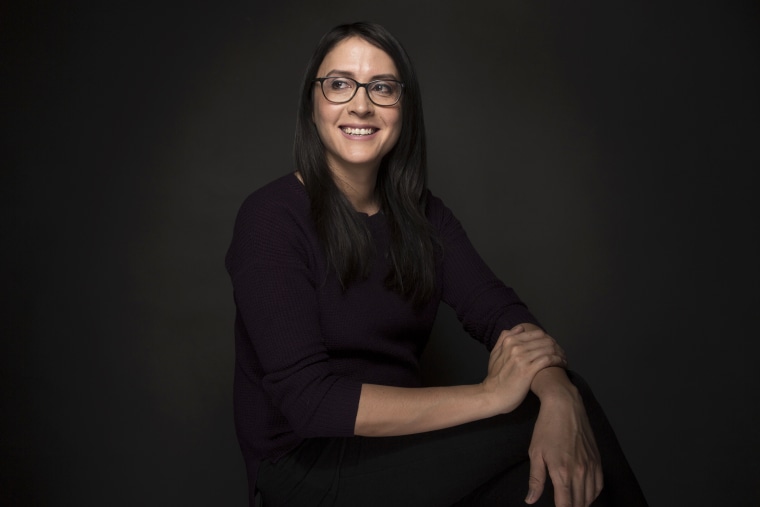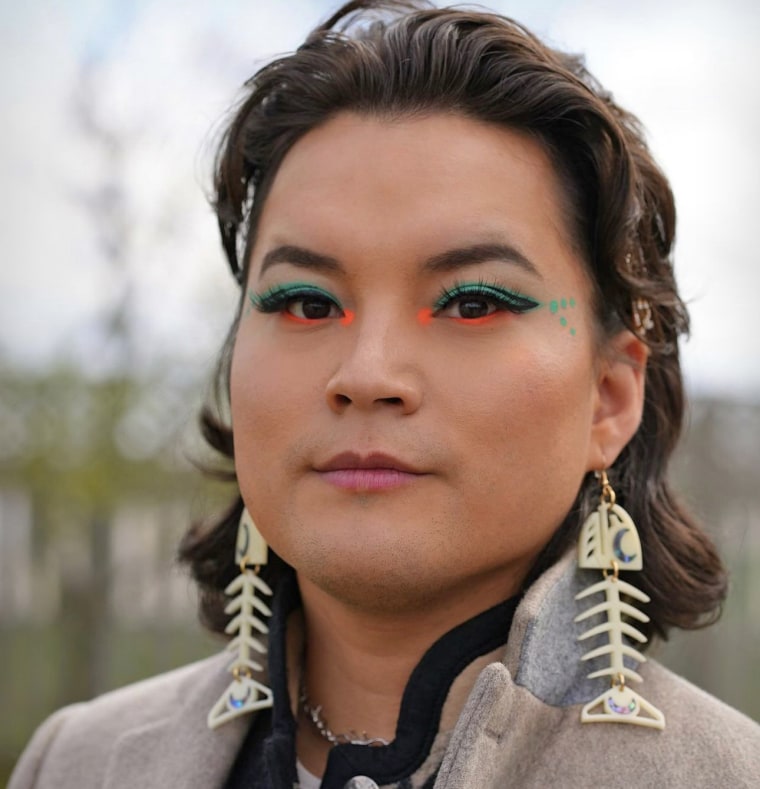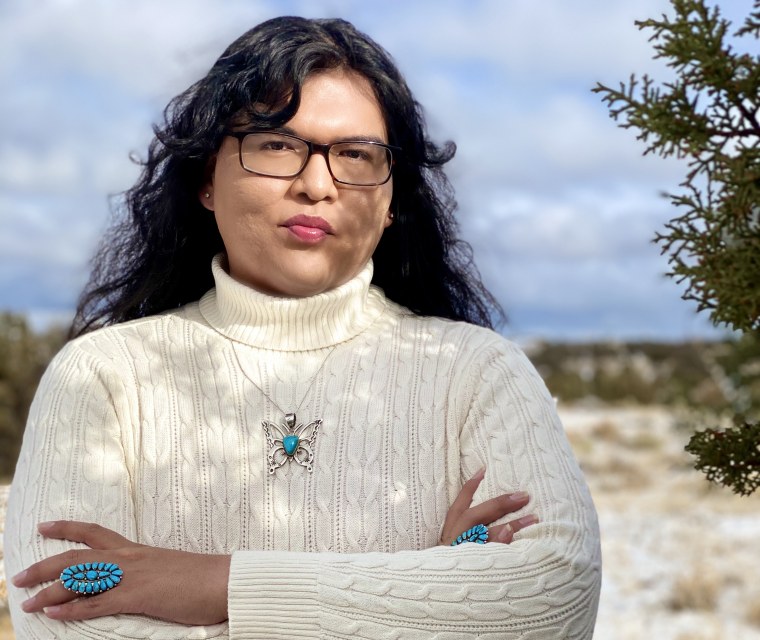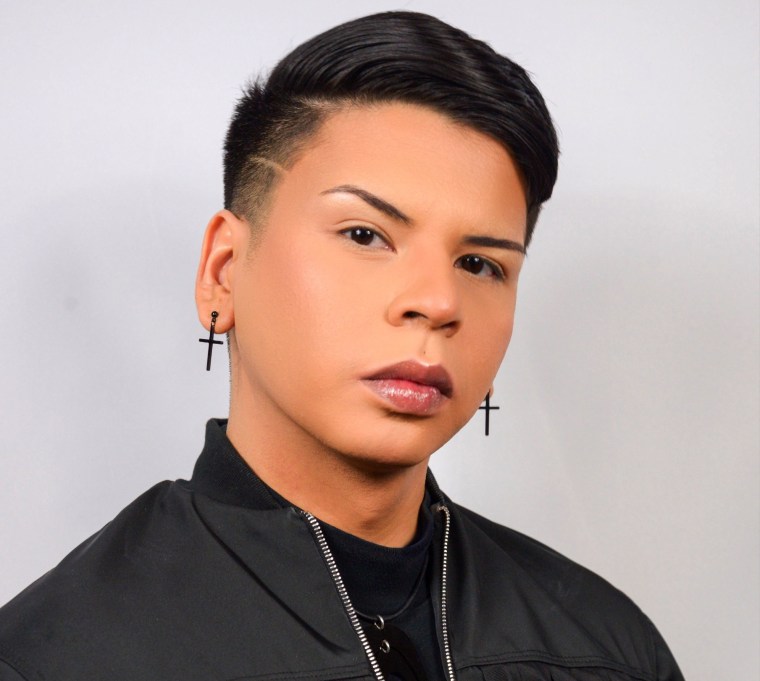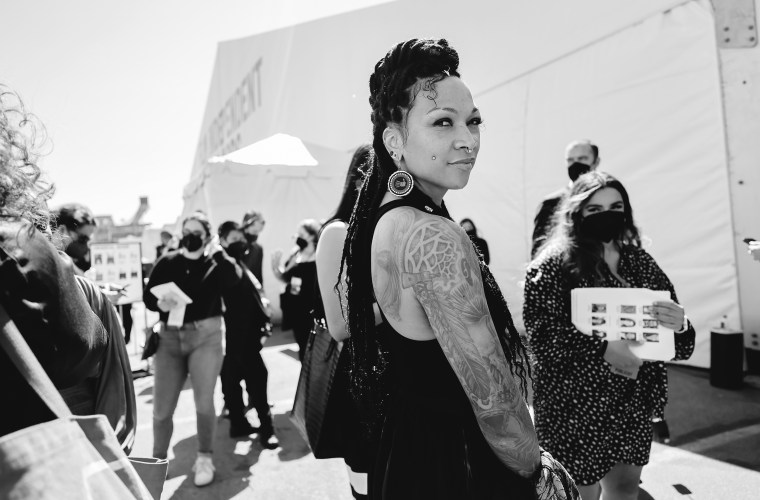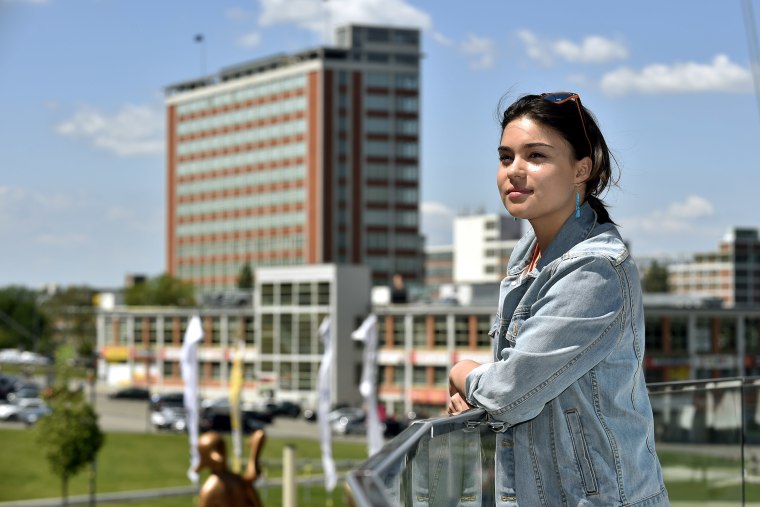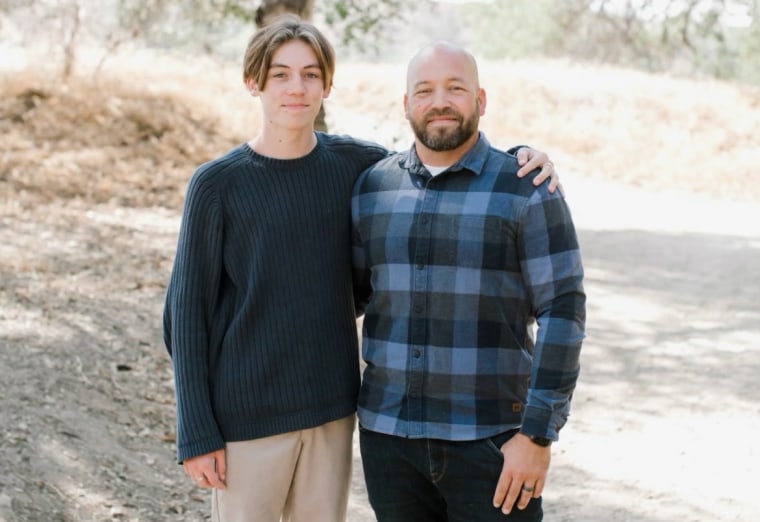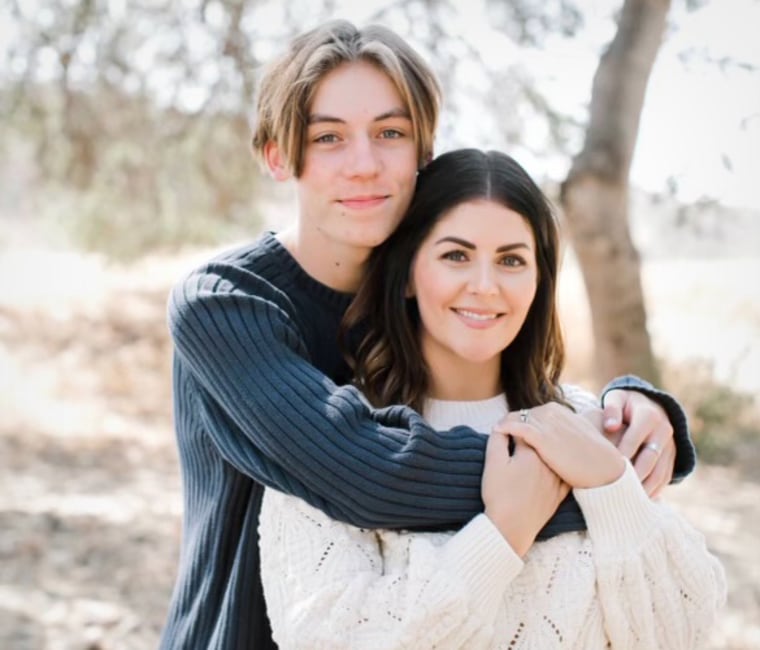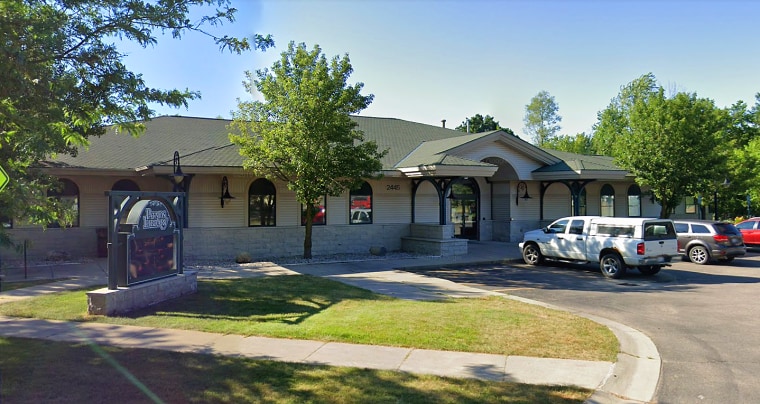A digital library offers hundreds of free LGBTQ books in response to wave of school bans
When Sara Katherine moved back to her hometown of Valparaiso, Indiana, from New York, she noticed a lack of support for LGBTQ youth. So she started volunteering as a mentor at a local nonprofit, chatting with queer teens who hadn’t seen LGBTQ people reflected much in media or in their community. Then she came across a resource gold mine: the Queer Liberation Library, a digital catalog of over 1,200 LGBTQ books for anyone across the country to access.
“I was able to tell them, ‘Hey, guess what? I have something free for you, and it’s thousands of books you can read where there are characters just like you who are falling in love, who are having adventures,’” said Katherine.
The Queer Liberation Library (QLL) was started by a team of nine volunteers in November to fill the queer literature gap amid a wave of state laws and school policies challenging books with LGBTQ themes. To “check out” a digital book, all readers need to do is provide their name and U.S. mailing address — information that QLL keeps private and secure — and they are granted access to the QLL catalog via Libby.
“It was one of those ideas that I was surprised that nobody else had thought of it already,” said Kieran Hickey, co-founder of QLL. “I knew it could be very impactful.”
While some public libraries, like the Brooklyn Public Library in New York, offer free digital access to their entire collection nationwide, QLL is one of the few services specifically curating books with queer themes or written by queer authors. In its first few months, QLL attracted nearly 4,000 readers. Today, it boasts a readership exceeding 50,000.
“The queer experience in the U.S. is so different, not just from state to state or city to city, but even from county to county,” said Erik Lundstrom, who handles financial and legal issues for QLL. “Being able to provide books in a safe manner, regardless of location or circumstances, is some of the most important work I’ll ever do.”
The ‘Avengers’ of the Queer Liberation Library
QLL was the brainchild of Hickey, whose love of, and lack of access to, LGBTQ literature led him to earn his master’s degree in library science from the University of British Columbia.
“My queer experience in particular, as a trans person, was very much not knowing what I was missing, not understanding why I felt so different, not understanding myself and feeling very detached from the world around me,” said Hickey. “I would escape into books.”
After volunteering at an in-person LGBTQ library in Vancouver post-college, he set out to replicate the concept upon moving to the U.S. Through connections with mutual friends, Hickey formed the QLL team — all volunteers who collaborate remotely across the country and have yet to meet in person.
Hickey calls the team “Queer Literature Heroes,” each with a role that helps them grow the library’s titles, reach and access.
Lundstrom, known as the “The Business Gay,” deals with legal matters and webpage management. Laura, the “Book Lister in Residence,” aids in the curation of titles. Fern Odawnul, or QLL’s “Social Media Gremlin,” shares updates on new book releases, merchandise launches and fundraising initiatives on Instagram, TikTok and X.
As a parent, Odawnul also consults on the library’s children’s book collection. Among the featured children’s books is “My Shadow Is Purple” by Scott Stuart, which introduces nonbinary identity to young readers. Through engaging illustrations, the story follows a child’s exploration of their shadow as neither blue nor pink, but purple. This realization helps the main character understand that they are not confined to specific gender roles.
“It’s just really sweet and a great way of describing that neither-both thing that many nonbinary identities frequently experience,” said Odawnul. The hope is that young readers like her son “grow up in a world that is welcoming,” Odawnul said.
Between July 2021 and December 2023, book bans were put in place in 42 states, in both red and blue districts, according to a PEN America report. While the bans target titles with themes of race, gender identity and sexual orientation, seven of the 10 most challenged titles in 2023 addressed LGBTQ subjects, according to an American Library Association report. Maia Kobabe’s “Gender Queer,” a graphic memoir detailing the author’s nonbinary coming out journey, remained at the top of the list for the third consecutive year.
Books with LGBTQ characters and themes help queer children feel like they are seen and belong, whereas book bans make them feel punished and erased, said Melanie Willingham-Jaggers, executive director of LGBTQ educational organization GLSEN. At least 1 in 4 high school students identify as LGBTQ, according to a 2021 Centers for Disease Control and Prevention survey.
“When LGBTQ+ youth lack access to books that reflect their narratives, they miss out on identity affirmation, role models and inspiration,” said Willingham-Jaggers. “This absence can lead to feelings of shame and self-doubt. They also miss critical social and emotional learning opportunities, which can help them navigate their own experiences.”
It’s also just as important for non-LGBTQ students to see queer representation, Willingham-Jaggers said. “By ensuring that queer literature is accessible to everyone, regardless of location, these platforms promote inclusivity and understanding,” she said. “They inspire a love for reading and support lifelong learning while fostering a sense of community among readers.”
The impact and future of the Queer Liberation Library
QLL continues to grow its collection and membership by surveying the needs and concerns of its audience. Odawnul said some respondents expressed fears about being unable to borrow LGBTQ books from their local libraries and that by getting to read these texts, they see their identities reflected. When she gets responses like that, “that’s when I know that we’re doing something right,” Odawnul said.
In Valparaiso, “there’s very little visibility and diversity,” said Katherine. But through books, she tries to show the LGBTQ youth she mentors that “what you’re feeling is OK, and that you being you is OK,” she said.
While the team respects members’ privacy and does not disclose specific details, Lawton shared a few demographics: 16% of members reside in rural regions, and two of the most checked-out titles on the platform include: “How to Bite Your Neighbor and Win a Wager” by D.N. Bryn and “At 30, I Realized I Had No Gender” by Shou Arai.
Next up, QLL hopes to host in-person events like book clubs, summer reading programs and meetups to support LGBTQ youth.
“I think that any opportunity that we have to bring queer people together and realize how much our shared liberation is dependent on each other’s liberation is super important,” said Hickey. “I’m trying to give people what I didn’t have.”
